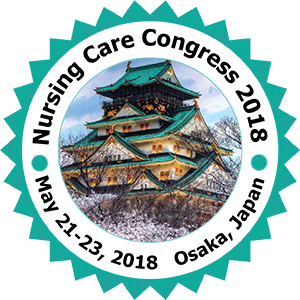
Wilaiporn Rojjanasrirat
Graceland University, USA
Title: Evidence-based practice competencies among online graduate nursing students
Biography
Biography: Wilaiporn Rojjanasrirat
Abstract
Background: The needs for evidence-based practice (EBP) competencies stemmed from the increasing demands of measurable quality and efficiency of current healthcare outcomes. Thus, assessment of learning and teaching of EBP are essential components of nursing curricula to prepare graduates as effective providers for the future healthcare workforce.
Purpose: To evaluate EBP competencies by comparing knowledge, attitudes and practices (KAP) of EBP scores among online graduate nursing students in Master’s (MSN) and Doctor of Nursing Practice (DNP) programs.
Design: A cross-sectional study was conducted at a private university in Mid-Western, USA.
Methods: The samples included 60 online graduate nursing students from three cohorts were invited to participate in the project. The new MSN students were asked to complete the survey prior to taking an EBP course. The exiting MSN and DNP student groups completed the survey following completion of the EBP application courses. The Evidence-based Practice Questionnaire (EBPQ) (Upton, 2006) was used to measure EBP competencies. Descriptive statistics ANOVA were used for comparison of EBP-KAP scores across groups.
Results: A total of 60 online graduate students participated in the survey. The mean age of students was 37 (SD=8.7). The mean EPB knowledge scores approached significance level among three group, F(2, 54) = 3.019, P = .057. Although a progressive increase in attitudes and practices of EBP scores was noted, no statistically significant differences among groups were found. Having research experience was the best predictor of EBP knowledge/skills (r = .29, P = .03). Years of experience as a professional nurse and completion of a research or EBP course in the past were not associated with knowledge/skill, attitudes or practice of EBP.
Conclusion: Students EBP-KAP did not differ significantly across groups. Further studies are needed to track students’ before and after graduation for a more robust analysis and interpretation of EBP competencies.

